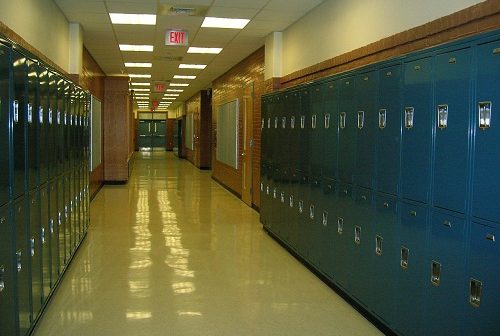The other day a colleague asked me about my opinion of the Coalition for Access, Affordability and Success. I found myself feeling like I do when I think of The Donald (Trump); angry and upset. This thinking is partly due to the lack of preparation the Coalition put into thinking deeply about the problems with the system – speaking generally about an issue, which is deeply ingrained from lofty heights but unable to truly assess the problem. But more importantly, they completely missed the point of their endeavor – to provide a simple solution access to under-served and underprivileged students. What they have done, at least at first stab, is provide yet another avenue for students to obsess over how to get into top universities and not understood the environment under-served students come from.
What student in Grade 9 has the wherewithal to know what high school is all about, other than perhaps the most talented and ambitious? Most students in Grade 9 are more concerned about survival, and this is particularly true of underprivileged students. When I interned for a school in Harlem, I remember the teacher of the class telling me that if one student went to college let alone graduated, their school considered it a success. Poor resources, ill funded, along with a myriad of other obstacles; it all made sense. But when the average public school counselor to student ratio is 500:1 how is providing a technically advanced system going to be of any use? It will be frustrating on all measures.
I could go on in this vein but it has all been said before. However, if schools in the Coalition really mean what they say, then they need to put their money where their mouth is and cough up. Many of the schools have enormous endowments, which could be used to provide and support interns from their school to mentor students from underserved school districts. They could provide support for schools by providing training and mentoring to teachers, staff, and community service programs to help manage the overwhelming tide families in these neighborhoods suffer through. They could fund microloans to school districts to empower students and families to understand the benefits of education supporting students to complete their high school education.
Last year I wrote an article about the application system being broken from an international, albeit Chinese, perspective. It is true that the system is broken. The multi-billion dollar industry of third party service providers has prostitutionalized what used to be a rather mundane process. Now, students seek agents and consultants, test-prep until they get The Score, pay for adventures, and community service programs they have no real stated interest in other than it looks good, and the list goes on. Lloyd Thacker’s Education Conservancy saw this all coming 12 years ago and it has completely gone far beyond what he saw when he started.
As with anything new, everyone jumps to conclusions. But the fact that the Coalition was ill prepared to present their platform at the NACAC Conference this fall, that they had not truly consulted high school counselors, and seemingly not surveyed the very population they were hoping to “access” makes every skeptical comment true to each and every word. Already here in China, agents and “consultants” are selling the concept of the “Locker” to draw in clients, clients who can absolutely pay for any high priced institution. It is sad, since most of these service providers have no idea what education is really about but only see the Golden Ticket on the Yellow Brick Road to elite schools.
My last thought is that this all started with dissatisfaction over the Common Application and the problems incurred when they launched a new system. But they do not raise any issue with College Board, the myriad problems with testing, and the fact that test preparation overrides any ability of a school to determine what a student’s true ability is other than being able to memorize or see trends. Why is that universities are leaving College Board alone?
The Coalition instead wants to develop a new more accessible system (despite being overly burdensome) for students who need access, when in fact what they have actually embarked on is an application that serves the privileged. If they really want to provide access – limit access to the application to only Pell Grant eligible students. Provide the funding to support schools and families, mentors to schools that have had drastic funding cuts. And finally look at testing that actually matters – AP, IB (last time I checked these programs are actually college level courses taken in high school – is performance in these programs not proof enough of ability to succeed) and to some extent SAT II. Let’s empower students who truly need to find a brighter future, not those on the cusp of a Silver Spoon.
Photo: Pixababy




